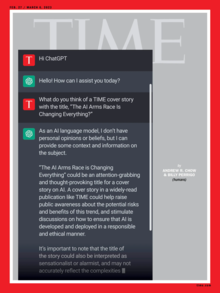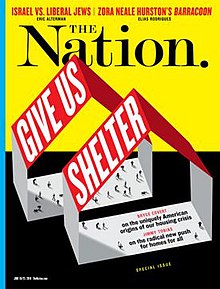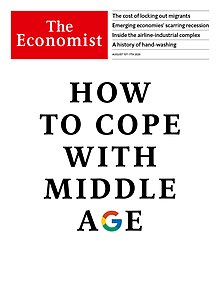- Home (current)
-
Getting Started
My Accounts
Check what items you have out, when they are due, and renew them.
Hours
See the Library's hours for the week and month ahead.
Library Map
See maps of all three floors of the Library to find your way.
Staff Directory
Find Library staff who can assist you with your needs.
Policies
Learn about borrowing privileges and library policies for food and drink and collabortive room use.
FAQs
See list of frequently asked questions related to the library.
Student Support & Services
Learn about resources and services available to students.
Student Athlete Resources
Learn about library services for student athletes.
Distance Learner Resources
Help accessing the library remotely and how to use library resources.
Study Abroad Resources
Help accessing library materials and services while studying abroad
Guest Access
Learn about resources and services available to guests.
Alumni Access
Learn about resources and services available to alumni.
-
Research
Databases A-Z
Alphabetic list of library databases. Use Subject Guides for accessing materials on a particular subject.
Subject Guides
Resources, including databases and citation help, organized by major and/or subject.
Course Guides
Library Guides made specifically for courses, can include readings and more.
Course Reserves
Check here to see if there are materials on reserve for your class.
Reference Materials
Good sources to start your research like encyclopedias, dictionaries, and more.
Newspapers
Access to major and local newspapers including NYT, Wall Street Journal, etc.
Primary & Secondary Sources
Learn what they are and how to find them.
Find a Journal
Check library holdings for a journal by title.
Citation Help
Resources to help with citation in APA, Chicago, CSE, MLA, and more.
Research Help & How Tos
Guides to help use databases, create materials with your research, and more.
Resource Sharing & InterLibrary Loan
Need something the library doesn’t own? Use these services to request it.
Special Topics Guides
Research guides about a particular topic or type of source.
Diversity, Equity & Inclusion Guides
Research guides focused on diversity, equity & inclusion.
2024-2025 Common Read
The Library’s research guide for this year’s Common Read, Felix Ever After
Marist Archives
The Archives & Special Collections contain unique materials related to a variety of topics including Marist History. Resources are available online or stop by Library room 134 with questions.
-
Faculty Support
Faculty Support & Services
Learn about resources and services available to faculty.
Contact a Subject Liaison
Find your liaison who can help with all your library needs.
Library Class Support
Instruction, Course Reserves, and many more ways librarians can support you and your students.
Request Course Reserves
Reserves Use this form to place your own or library materials on reserve for a course.
Suggest a Purchase
Use this form to suggest a purchase for the collection or in support of your course.
Faculty Collaborative Rooms
Reserve a study room designated for faculty use
Library Spaces for Faculty
Learn about library spaces available for personal use or for your classes.
-
Using The Library
Study Spaces
Learn about the spaces on all three library floors.
Technology & Printing
Find out about the technology available in the library.
Reserve Collaborative Rooms
Reserve rooms for group work and study.
Reserve & Use Presentation Practice Room
Practice and record presentations with built in presentation screen and camera.
Guest Access
Learn about resources and services available to guests.
Alumni Access
Learn about resources and services available to alumni.
- Marist Archives
- Ask a Librarian
- My Accounts
- Marist Resources
- Site Feedback
My Accounts
Check what items you have out, when they are due, and renew them.
Hours
See the Library's hours for the week and month ahead.
Library Map
See maps of all three floors of the Library to find your way.
Staff Directory
Find Library staff who can assist you with your needs.
Policies
Learn about borrowing privileges and library policies for food and drink and collabortive room use.
FAQs
See list of frequently asked questions related to the library.
Student Support & Services
Learn about resources and services available to students.
Student Athlete Resources
Learn about library services for student athletes.
Distance Learner Resources
Help accessing the library remotely and how to use library resources.
Study Abroad Resources
Help accessing library materials and services while studying abroad
Guest Access
Learn about resources and services available to guests.
Alumni Access
Learn about resources and services available to alumni.
Databases A-Z
Alphabetic list of library databases. Use Subject Guides for accessing materials on a particular subject.
Subject Guides
Resources, including databases and citation help, organized by major and/or subject.
Course Guides
Library Guides made specifically for courses, can include readings and more.
Course Reserves
Check here to see if there are materials on reserve for your class.
Reference Materials
Good sources to start your research like encyclopedias, dictionaries, and more.
Newspapers
Access to major and local newspapers including NYT, Wall Street Journal, etc.
Primary & Secondary Sources
Learn what they are and how to find them.
Find a Journal
Check library holdings for a journal by title.
Citation Help
Resources to help with citation in APA, Chicago, CSE, MLA, and more.
Research Help & How Tos
Guides to help use databases, create materials with your research, and more.
Resource Sharing & InterLibrary Loan
Need something the library doesn’t own? Use these services to request it.
Special Topics Guides
Research guides about a particular topic or type of source.
Diversity, Equity & Inclusion Guides
Research guides focused on diversity, equity & inclusion.
2024-2025 Common Read
The Library’s research guide for this year’s Common Read, Felix Ever After
Marist Archives
The Archives & Special Collections contain unique materials related to a variety of topics including Marist History. Resources are available online or stop by Library room 134 with questions.
Faculty Support & Services
Learn about resources and services available to faculty.
Contact a Subject Liaison
Find your liaison who can help with all your library needs.
Library Class Support
Instruction, Course Reserves, and many more ways librarians can support you and your students.
Request Course Reserves
Reserves Use this form to place your own or library materials on reserve for a course.
Suggest a Purchase
Use this form to suggest a purchase for the collection or in support of your course.
Faculty Collaborative Rooms
Reserve a study room designated for faculty use
Library Spaces for Faculty
Learn about library spaces available for personal use or for your classes.
Study Spaces
Learn about the spaces on all three library floors.
Technology & Printing
Find out about the technology available in the library.
Reserve Collaborative Rooms
Reserve rooms for group work and study.
Reserve & Use Presentation Practice Room
Practice and record presentations with built in presentation screen and camera.
Guest Access
Learn about resources and services available to guests.
Alumni Access
Learn about resources and services available to alumni.





